
– 30 -7-2023 –
Seventeenth Sunday in Ordinary Time
Gospel Text: Matthew 13:44-52
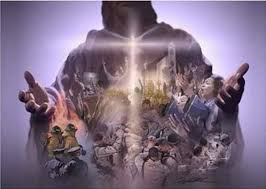 vs.44 Jesus said to the crowds:
vs.44 Jesus said to the crowds:
“The kingdom of heaven is like treasure hidden in a field which someone has found; he hides it again, goes off happy, sells everything he owns and buys the field.
vs.45 Again, the kingdom of heaven is like a merchant looking for fine pearls;
vs.46 when he finds one of great value he goes and sells everything he owns and buys it.
vs.47 Again, the kingdom of heaven is like a dragnet cast into the sea that brings in a haul of all kinds.
vs.48 When it is full, the fishermen haul it ashore; then, sitting down, they collect the good ones in a basket and throw away those that are no use.
vs.49 This is how it will be at the end of time: the angels will appear and separate the wicked from the just
vs.50 to throw them into the blazing furnace where there will be weeping and grinding of teeth.
vs.51 Have you understood all this?”
They said “Yes.”
vs.52 And he said to them,
“Well then, every scribe who becomes a disciple of the kingdom of heaven is like a householder who brings out from his storeroom things both new and old.”
***************************************************************
We have four sets of homily notes to choose from. Please scroll down the page for the desired one.
Michel DeVerteuil : A Holy Ghost Priest, Specialist in Lectio Divina
Thomas O’Loughlin: Professor of Hist.Theol, University of Nottingham
John Littleton: Director ,Priory Institute, Tallaght, Dublin 24
Donal Neary SJ: Editor of The Sacred Heart Messenger
****************************************
Michel DeVerteuil
Lectio Divina with the Sunday Gospels- Year A
www.columba.ie
General Comments
This Sunday’s gospel is a collection of four parables, teaching us about the kingdom of heaven. Be content to choose one and remain with it. To ensure that your meditation remains down to earth, you must clarify what for you is “the kingdom of heaven”. It is a biblical expression which means “what happens when God is really king,” and it includes his being king of an individual as well as of a community. You might translate it as “growing spiritually” or “getting closer to God.” Follow the movement of the teaching: don’t start by trying to understand what “the kingdom” means; start with the parable and let it teach you about the kingdom. And let the details of the parable speak to you so that you can enter into it.
The first two parables – verse 44, and verses 45 and 46 – appear to be similar, but if you read them carefully, you will find that they are actually quite different.
The third parable – verses 47 to 50 – is different from the others in that an interpretation is added to it in verses 49 and 50. You need not, however, tie yourself down to this interpretation, as the parable can stand by itself.
The final parable, verses 51 and 52, is different again in that it represents the moment when someone – in this case a wise person – becomes a disciple of the kingdom.
Prayer Reflection
“He does not have a shred of bitterness, even after twenty-eight years of prison and abuse and injustice.” – Shridath Ramphal, speaking of Nelson Mandela
 Lord, we thank you for people of faith:
Lord, we thank you for people of faith:
– ordinary people like our grandparents or elders in our parish community;
– great people like Nelson Mandela.
They have developed an extraordinary serenity in facing their problems.
They are like people who have chanced on a huge treasure that was hidden in a field, who have hidden it again and gone off perfectly happy because they went and bought the field, and now they know that they have nothing to worry about for the rest of their lives.
Lord, we thank you for conversion experiences:
– a Life-in-the-Spirit seminar,
– a retreat, or a marriage encounter weekend,
– meeting someone we knew we could trust.
Up till then we had been living scattered lives, like a juggler trying to keep different pieces in the air all at once, or a merchant forever looking for a pearl more precious than the one he had just bought.
Now we knew that we had found a pearl of such great value
that we were willing to go off and sell everything we owned and buy it.
“What has emerged with great clarity is the lack of a moral foundation
for the formation of public policy in this most crucial area, that of human life and death.” – …Cardinal Hume, after a parliamentary vote on abortion
Lord, our societies are floundering because we equate means and ends.
Teach us that there are values that are like pearls, so precious we would not dream of selling them; on the contrary, we would sell everything we own
in order to buy them.
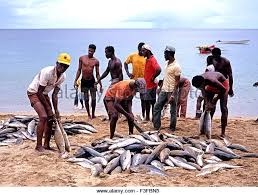 Lord, when we are doing good
Lord, when we are doing good
we must not worry so much about ourselves,
wanting to make sure that we have the purest intentions.
Working for you is like the fishermen in Mayaro, Trinidad, W.I. letting out their nets: good fish get caught in the net, but all kinds of other things too – old bottles, shoes, bits of galvanize – that they will simply throw back into the sea.
“The family that prays together stays together.” …Fr Patrick Peyton
Lord, we thank you for prayer time in our families
– the family rosary, the Prayer of the Church, our own family prayers.
Our lives together are like a great dragnet,
bringing in a haul of all kinds: good and bad experiences,
problems that need to be sorted out,
and others that seem important at the time
but eventually we realize that they are of no importance at all.
Our prayer time is when we put things into perspective,
like fishermen at the end of the day sitting down and
collecting the good fish in a basket
and throwing away those that are of no use.
“I see the Soviet Union as a country on the way to moral stability,
a country that has revived its old spiritual values and enriched them with new ones.”…. Mikhail Gorbachev, interview in TIME Magazine, June 1990
Lord, we pray for the leaders of nations.
Help them to be wise and to become disciples of your kingdom,
so that like good householders bringing from the storerooms of their cultures new things as well as old.
*****************************************************
Thomas O’Loughlin
Liturgical Resources for the Year of Matthew
www.columba.ie
Introduction to the Celebration
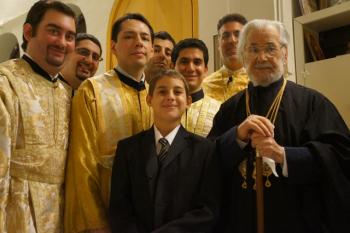
Helping the Patriarch make good liturgy.
When we gather in church each Sunday we are not simple a scattering of individuals, but a family who are brothers and sisters in Christ Jesus. He has called each of us, and transformed us from being isolated individuals into being a community: his body. Now as that community he wants us to gather about his table and share in his one loaf and one cup. By doing this he is sharing his life with us, and we are showing our willingness to share our lives with one another.
Homily Notes
1. Learning to be Christians: we learn to be Christians by long periods of apprenticeship: working in groups at being the presence of Jesus in our ways of thinking, playing, working, and living. Just as you can only learn to be a pilgrim by setting out with a group of pilgrims, so you can only learn how to move on the pilgrimage of life by travelling and acting with other Christians.
3. The kingdom is the group of people; and each of us has to see working with the group as a treasure we desire to own. Learning to be a Christian involves recognising that working as part of the group must have priority over our tendency to wander off to work as isolated individuals.
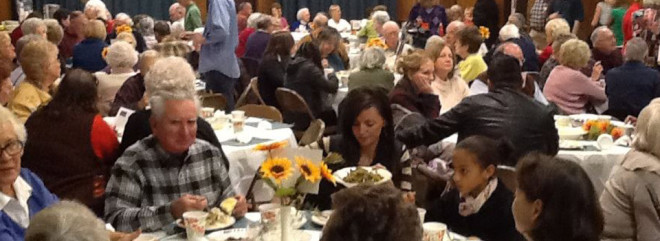
Parish celebrating Community
4. Learning from our gathering here today. We learn to pray together with one voice as a priestly people. We commit ourselves to working for peace. We learn to share our talents. We learn to share our joys and sorrows. Contrast that with spiritualistic individualism. This is the notion that I do not have to join with others to pray, I can pray on my own, I can be spiritual on my own. Interesting sentiments that are true as far as they go – but they do not go very far nor far enough.
Jesus did not come with to sell ideas to individuals, but to form a community. We can only learn to pray as that community by praying with that community. Jesus did not invent a set of rituals for several individuals, but wanted his people to have the ethos of sharing among themselves. Indeed, the very heart of his community is mirrored in the sharing of a family around the meal table.
5. If I want to learn to be a Christian, then I must commit myself to gathering with the group, to praying with the group, to sharing my talents and resources with the group, and collectively we must share them with the poor.
6. Even when I pray on my own, I must remember that I pray as part of the community. Even alone I pray ‘Our Father’ not ‘my Father’; even alone I pray that the Father ‘give us this day our daily bread’ not that he give me my needs; I pray ‘forgive us our trespasses’ not just that he forgive me mine; I pray that’ as we forgive those who trespass against us,’ so he should forgive us; and I pray that he does not ‘lead us into temptation.’
7. Discovering that I can become truly the person God wishes me to be is a pearl of great price, but that in turn demands that we learn to live and work in loving communities. Such communities of love mirror within the creation the community of love that is the Father, the Son, and the Spirit.
****************************************************************
John Litteton
Journeying through the Year of Matthew
www.Columba.ie
Gospel Reflection
It is not fashionable to talk about hell nowadays. Many people no longer believe in the reality of hell. Some people also deny the reality of heaven, arguing that there is nothing after life on this earth. Yet, according to the scriptures, the ultimate destiny of each human being will be either heaven or hell.
This is a fundamental teaching of Christianity. It is erroneous to presume, as many people do, that God will bring all people to heaven anyway, regardless of how they have lived, because the Creator’s love and mercy have no limits — although, according to Saint Paul, God wants everyone to be saved (see 1 Tim 2:4).
God’s love is indeed unconditional and his mercy is endless. But God gives each person the gift of free will and always respects that freedom. It is naïve to assume that our conscious decisions and freely-chosen actions do not have consequences.
In his preaching, Jesus was definite about the consequences of how we live on this earth. He taught that at the end of time there will be judgement when the angels will separate the wicked from the just. The wicked will then be thrown ‘into the blazing furnace where there will be weeping and grinding of teeth’ (Mt 13:50). They will be alienated from God forever, not because of God’s harsh judgement but rather because of the self- imposed judgement of their sinful attitudes and lifestyles.
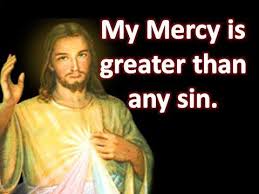 There is a connection between how we live in this world and our ultimate destiny in the next life. The two are undeniably linked. During our earthly lives we have many opportunities to learn how to know and love God. God is the Just Judge and Merciful Father who desires that we journey towards our true home in heaven by freely choosing to avoid sin and being faithful to the gospel.
There is a connection between how we live in this world and our ultimate destiny in the next life. The two are undeniably linked. During our earthly lives we have many opportunities to learn how to know and love God. God is the Just Judge and Merciful Father who desires that we journey towards our true home in heaven by freely choosing to avoid sin and being faithful to the gospel.
If we knowingly and freely choose sinfulness and evil throughout our lives, without ever repenting, our eternal destiny will be alienation from God. We sin when we refuse to respond to God’s loving presence in our lives and in our world. We also sin when we choose estrangement from God. While God always invites us to return to his loving presence, he will not force us to do so.
How we choose to live in this world has a bearing on the next life. We cannot be with God for ever in heaven unless we are with him during this earthly life. We prepare for the next life — a life enjoying the eternal happiness of heaven — by living this life as fully as possible in the presence of God. We are challenged to be faithful to Christ’s teaching and example, keeping his commandments.
The Church teaches us that hell exists. But it has never declared that there is anyone in there. Instead, it offers us access to God’s life through its preaching of the word of God and the sacraments. So will it be heaven or will it be hell for eternity? We must choose.
For meditation
This is how it will be at the end of time: the angels will appear and separate the wicked from the just to throw them into the blazing furnace where there will be weeping and grinding of teeth. (Mt 13:49-50)
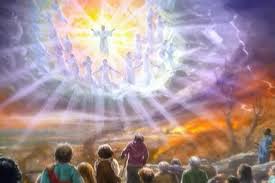
And you’re final answer is ?
*********************************************************
Fr Donal Neary, S.J
Gospel Reflections for the Year of Matthew
www.messenger.ie/bookshop/
The good, the bad, and the treasure
Jesus takes the ordinary for his story asking what you would really want never to lose/ asking what your treasure is. Is it money, reputation, locality? I gave up a better job but had time for the family and for love’; words of a young father. We know that parents give up a lot for their children; as do grandparents/ godparents and others. As people we look for what’s most important in life: the love of God; deep and enduring friendships/ success after hard work in school/ commitment to the poor – what cannot be lost and what is worth sacrificing other good things for.
Life is a mixture of the good and the bad. There is an old Dublin saying: ‘There’s good in the worst of us and bad in the best of us. We work for God with the strengths and weaknesses of all we work with. God sows the seed of the gospel in good and bad soil; it bears fruit in its own way wherever it is sown.
The treasure is in our people. So much hidden generosity comes out at bad times – floods, power cuts, illness and death. We need always to find the hidden treasures in our own people and even in our history.
The kingdom of God is close, near and is within us.

Think of what you really value in life. Take time.
Give thanks to God for what brings deep joy in life.
Thy Kingdom Come, Lord Jesus.